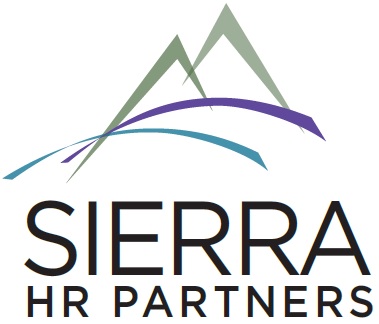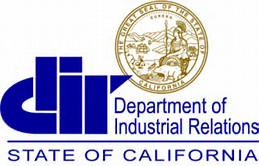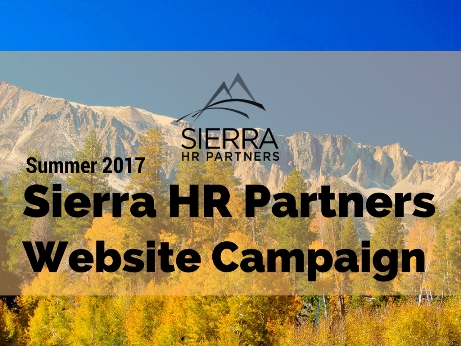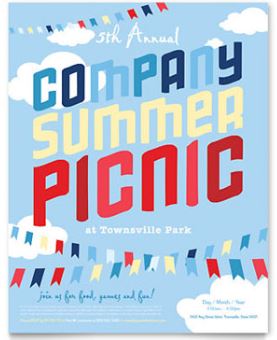07.07.17
It May be a Dry Heat, but it can be a Deadly Heat, Too!
HR Bulletin
It May be a Dry Heat, but it can be a Deadly Heat, Too!

We are experiencing record breaking heat in the Central Valley and across much of California. It is a good time to evaluate your Heat Illness Prevention Program (HIPP) so that you can protect your employees from heat illness and heat stroke. Bill Krycia, Cal/OSHA Heat Program Coordinator, met recently with safety professionals from the Central Valley to discuss California’s Heat Illness Prevention Standard. He outlined the three most common problems with HIPPs.
1. Lack of or Inadequate Heat Illness Prevention Plan
The most common error is the failure to maintain a meaningful HIPP. While Cal/OSHA has developed a model plan, Krycia said that printing the model and filing in the blanks is not enough. Company plans need to address the specific hazards they face.
For example, Aaron Hansen owns The Smokin’ Burrito food truck. He told The Fresno Bee that his generator can’t run the air conditioner and the cooking equipment at the same time. Without air conditioning, it can get hotter inside the truck than outside. The HIPP for Hansen’s business will need to address how to keep employees safe at those extreme temperatures. A plan must also be readily available to all employees. Having the plan “back at the office” is not enough. If a plan isn’t available at each worksite, employers violate the Heat Illness Prevention Standard.
2. Lack of or Inadequate Employee Training
Another common employer error is the failure to provide adequate training. California law requires that all employees receive proper training before starting work in high temperatures. Consider the employee who joined the company after the company held its annual heat illness training. The employer violates the Standard when an employee begins work that could expose him/her to risk a of heat illness before receiving training.
3. Lack of or Inadequate Provision of Potable Water
The third most common violation of the Standard is the employer’s failure to provide adequate drinking water. Outdoor employers are required to provide water that is “fresh, pure, suitably cool, and provided to the employee free of charge.” Water must also be located “as close as practicable” to where employees are working. Employers sometimes leave water in the trunks of cars parked at worksites. It might be closer to employees, but water in a locked trunk is neither accessible nor suitably cool.
While California heat illness regulations are directed at outdoor workplaces, the Standard may apply to indoor workplaces, as well. The California Occupational Safety and Health Appeals Board recently upheld citations issued against employers who failed to address indoor heat. We will address the application of the outdoor Standard to indoor workplaces in a subsequent newsletter.
Want to read the full newsletter? Become an HR Business Partner and receive our monthly updates by email.
As an HR Business Partner, you receive:
• Unlimited phone consultation by certified HR consultants Monday through Friday, 8 a.m. – 5:30 p.m.
• Free monthly legal seminars for designated representative
• Breaking employment news & best practices
• Discounted project rates
• Peace of mind
07.07.17
Notice to Victims of Domestic Violence
HR NEWS
Notice to Victims of Domestic Violence


Pursuant to La bor Code § 230, all employers must provide time off for employees who are seeking relief or assistance from domestic violence, sexual assault or stalking. Pursuant to Labor Code § 230.1, businesses with 25 or more employees are required to provide additional time off to employees who are victims of domestic violence, sexual assault or stalking.
bor Code § 230, all employers must provide time off for employees who are seeking relief or assistance from domestic violence, sexual assault or stalking. Pursuant to Labor Code § 230.1, businesses with 25 or more employees are required to provide additional time off to employees who are victims of domestic violence, sexual assault or stalking.
The law, as amended in 2016, requires employers to provide a form notifying employees of their rights under sections 230 and 230.1. The form must be provided to all employees upon hire, and to existing employees upon request.
The Labor Commissioner recently created the form, which is available online.
The form should be included in the new hiring packet provided to employees.
Have questions? Become an HR Business Partner and receive unlimited phone consultation, with our trusted consultants.

06.15.17
Checking Criminal Histories Without Breaking the Law: June 2017 HR Bulletin
HR Bulletin
Checking Criminal Histories Without Breaking the Law

The Fair Employment and Housing Act (FEHA) and the Fair Credit Reporting Act impose significant limitations on the ability to check into a job applicant’s criminal history. An employer is not permitted to consider charges that were dismissed, sealed, or did not result in conviction. Most convictions more than seven years old cannot be considered, as well as certain marijuana convictions beyond two years old. If you use a third-party agency to conduct a background investigation, the applicant must provide written authorization, and must be given a copy of the report and the chance to dispute information contained in it.
Despite these existing rules, FEHA has recently been updated to state that an employer is prohibited from using an applicant’s criminal history when making a hiring decision if doing so would have an “adverse impact” on protected individuals, and the employer cannot prove that its standards are consistent with business necessity. Adverse impact is defined as a policy or practice that appears neutral, but has a substantially different rate of impact on protected classes. For example, a policy of never hiring a person with a felony conviction may adversely affect African-American or Hispanic men.
So are we saying you need to stop conducting background checks? Not by a long shot. A thorough, legally-compliant background investigation should be a consistent part of any employer’s hiring process. The key is to show the business necessity and job-relatedness of your policies. While you should not have a “bright line” policy that rejects applicants with criminal records, you can (and should) use convictions in your hiring decisions when you:
• Take into account the nature and gravity of the offense,
• Consider the time since the offense occurred, and
• Connect the type of offense to the requirements of the job.
An employer must also provide applicants with notice if they are being screened out due to criminal convictions and allow reasonable opportunity for the applicant o explain why he/she should not be excluded from further consideration. If an applicant can provide evidence that a conviction record is inaccurate, you should not continue to use that record in your decision-making process.
This may seem extremely complicated, but the background investigation specialists at Sierra HR Partners are here to help. We can partner with you to determine which searches are job-related and analyze an applicant’s investigation results so you can make appropriate hiring decisions. We can also provide you with sample letters to notify applicants who are not hired based in part on a criminal record. If you have questions about your current screening process, contact us today.
06.08.17
2017 Website Campaign
Announcements
Sierra HR Partners has a new website!

To improve service and value for our clients, we’ve worked through the joys and challenges of creating an entirely new, interactive website. We hope you’ll take a few minutes to check out the new features and familiar faces of Sierra HR Partners.
To pique your interest, we invite you to take our brief website quiz. Just click on the button below. All of the answers you’ll need are found on our website. It only takes about 10 minutes to hunt for the answers to 12 questions, and you’ll be entered in a drawing to win a prize!
(more…)
05.31.17
Don’t Get Burned By Summertime Events -May 2017 HR Bulletin
Uncategorized
Don’t Get Burned by Summertime Events
The summer season is upon us, and many employers look forward to planning events such as barbeques, baseball games, and water park trips. These outings provide excellent opportunities to reward employees, socialize with families, and enjoy time away from the normal pressures of the office…but as a manager or HR professional, this is not the time to let down your guard.
Employer Liability
Employees and managers alike tend to think that “what happens away from the office, stays away from the office.” But under the doctrine of respondeat superior, an employer may be held liable for acts committed by employees within the course and scope of their employment, whether at the workplace or not. Furthermore, the employee does not need to be engaged in his/her actual job responsibilities to be deemed “under the control of the employer.” Liability is increased if the event is mandatory or if the employer may be seen as benefitting from the event through awards presentations or discussion of company programs or goals.
Sexual Harassment
Summer events are perfect environments for employees to relax from the formal dress code of your office, but bathing suits or other revealing clothing can easily open the door to suggestive comments or behavior. A one-time incident at a summer picnic may be severe enough to create liability, or may be cited as part of a pervasive pattern of inappropriate conduct.
Employee Injuries
Workers’ compensation typically does not cover injuries arising out of voluntary participation in off-duty events, but if a social event is considered to be work-related, workers’ compensation insurance may apply to injured employees.
You may reduce this risk by avoiding high-risk activities such as water skiing, and ensuring that only responsible individuals operate barbeque grills and other cooking equipment. Keep a close eye on bounce houses, obstacle courses and races, and any water activities.
Alcohol Consumption
The risks for harassment claims and injuries are heightened when employees consume alcohol at social events. In a 2004 legal claim involving liability for injuries caused by drunk driving after a company party, the court stated, “ It is irrelevant that foreseeable effects of the employer’s negligent conduct occurred at a time the employee was no longer acting within the scope of his or her employment.”
Social Media
Ever-present “selfies” and social media posts increase the likelihood that images and recordings of less-than-professional behavior will be shared outside of the company, damaging company image and employee credibility.
HR Best Practices
So what’s a good HR Manager to do? You can help to ensure that employees have a great time while protecting the interests of your company with the following steps:
• Clearly inform employees that events are voluntary.
• Remind employees and managers about appropriate conduct, anti-harassment policies, and social media policies.
• Specify that attire should be in good taste and appropriate for a workplace event.
• Shape your social media policy in advance and explain the expectations to all employees. Be prepared to address inappropriate social media posts.
• Consider no alcohol, a cash bar, or drink tickets to limit alcohol consumption.
• Make arrangements for sober transportation (taxi, ride share, designated drivers).
• Follow standard procedures if an employee is injured including providing the DWC-1 Form within one working day and notifying your workers’ compensation carrier of the incident.
• Promptly investigate any complaints of harassment or inappropriate behavior.
• Enlist the help of other managers to watch for inappropriate behavior and excessive drinking, and take necessary steps.
Want to read the full newsletter? Become an HR Business Partner and receive our monthly updates by email.
As an HR Business Partner, you receive:
• Unlimited phone consultation by certified HR consultants Monday through Friday, 8 a.m. – 5:30 p.m.
• Free monthly legal seminars for designated representative
• Breaking employment news & best practices
• Discounted project rates
• Peace of mind




 bor Code § 230, all employers must provide time off for employees who are seeking relief or assistance from domestic violence, sexual assault or stalking. Pursuant to Labor Code § 230.1, businesses with 25 or more employees are required to provide additional time off to employees who are victims of domestic violence, sexual assault or stalking.
bor Code § 230, all employers must provide time off for employees who are seeking relief or assistance from domestic violence, sexual assault or stalking. Pursuant to Labor Code § 230.1, businesses with 25 or more employees are required to provide additional time off to employees who are victims of domestic violence, sexual assault or stalking.



